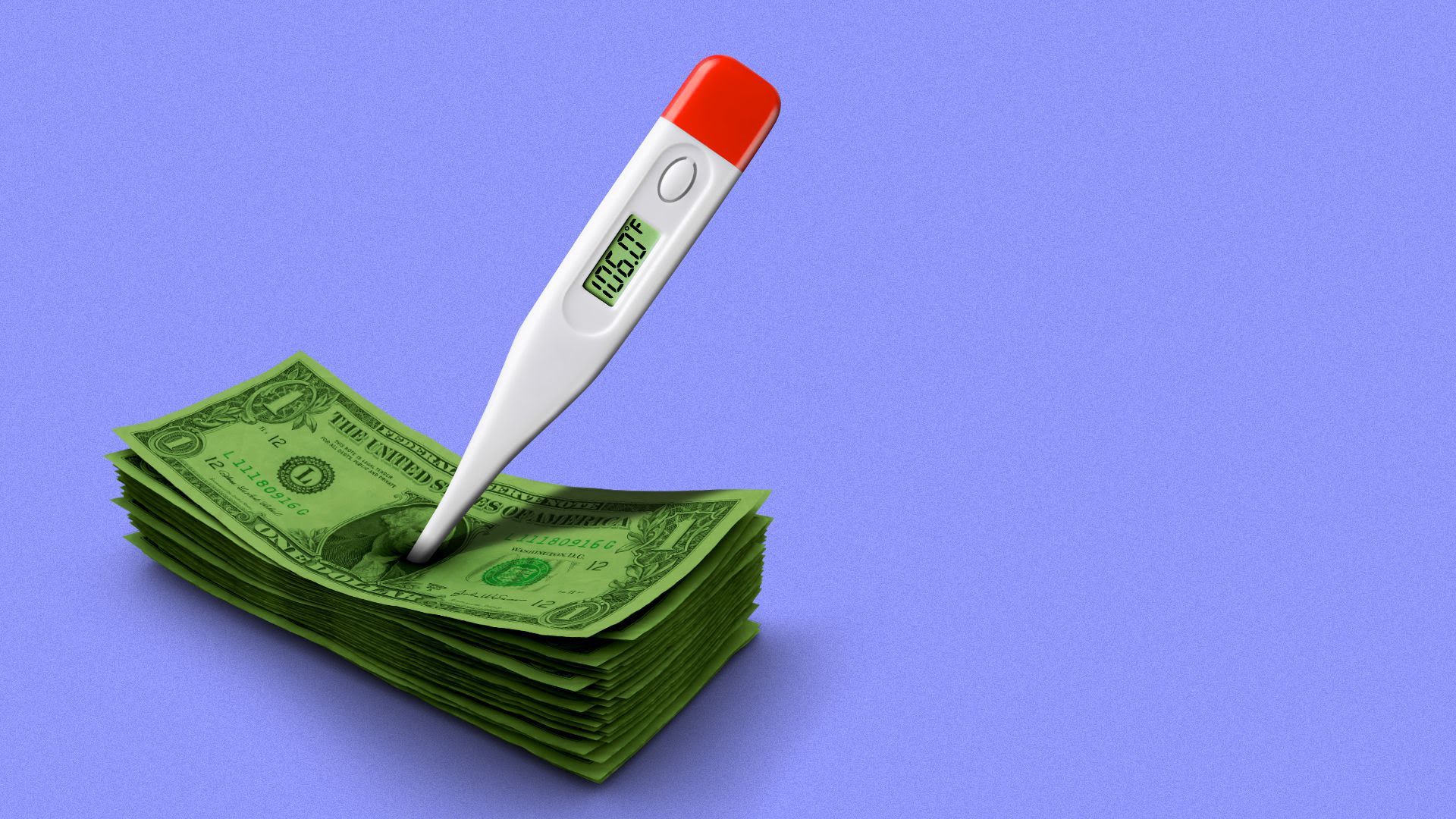Employers left scrambling as workers call in sick
Add Axios as your preferred source to
see more of our stories on Google.

Illustration: Aïda Amer/Axios
Millions of Americans are calling in sick or isolating, leaving employers scrambling and forcing low-income workers to go without pay or risk going into work.
Why it matters: The latest pandemic health crisis is undermining employers, draining the bottom line and risking reduced output.
- Industries with workers that can't do their jobs at home are expected to be hit the hardest.
- More than 5 million Americans, or 2% of the workforce, “could now be isolating,” Capital Economics economist Andrew Hunter estimated.
Threat level: Worker shortages are already bludgeoning employers, which had 3.85 million more job openings than the economy had unemployed workers as of November.
- With absenteeism spreading, that's expected to worsen, causing more flight cancelations, restaurant closures, product shortages and reduced public services.
- “Things are only likely to get worse in the near term,” Hunter notes.
Between the lines: Nearly 1 in 4 private-sector workers don’t have paid sick time, including about 7 in 10 of the lowest-paid employees, according to the Center for Law and Social Policy (CLASP).
Context: Democrats had included paid sick leave in President Biden’s Build Back Better plan, but the initiative is dead for now after they were unable to gather enough support on Capitol Hill amid opposition from Republicans.
- “It’s completely indefensible that two years into a global pandemic we don’t have comprehensive, guaranteed paid sick time,” CLASP worker advocate Emily Andrews tells Axios.
The other side: Opponents of mandatory paid sick leave say it doesn’t prevent workplace illnesses or reduce employee turnover.
The bottom line: Expect Omicron-related absenteeism to continue disrupting your life.
